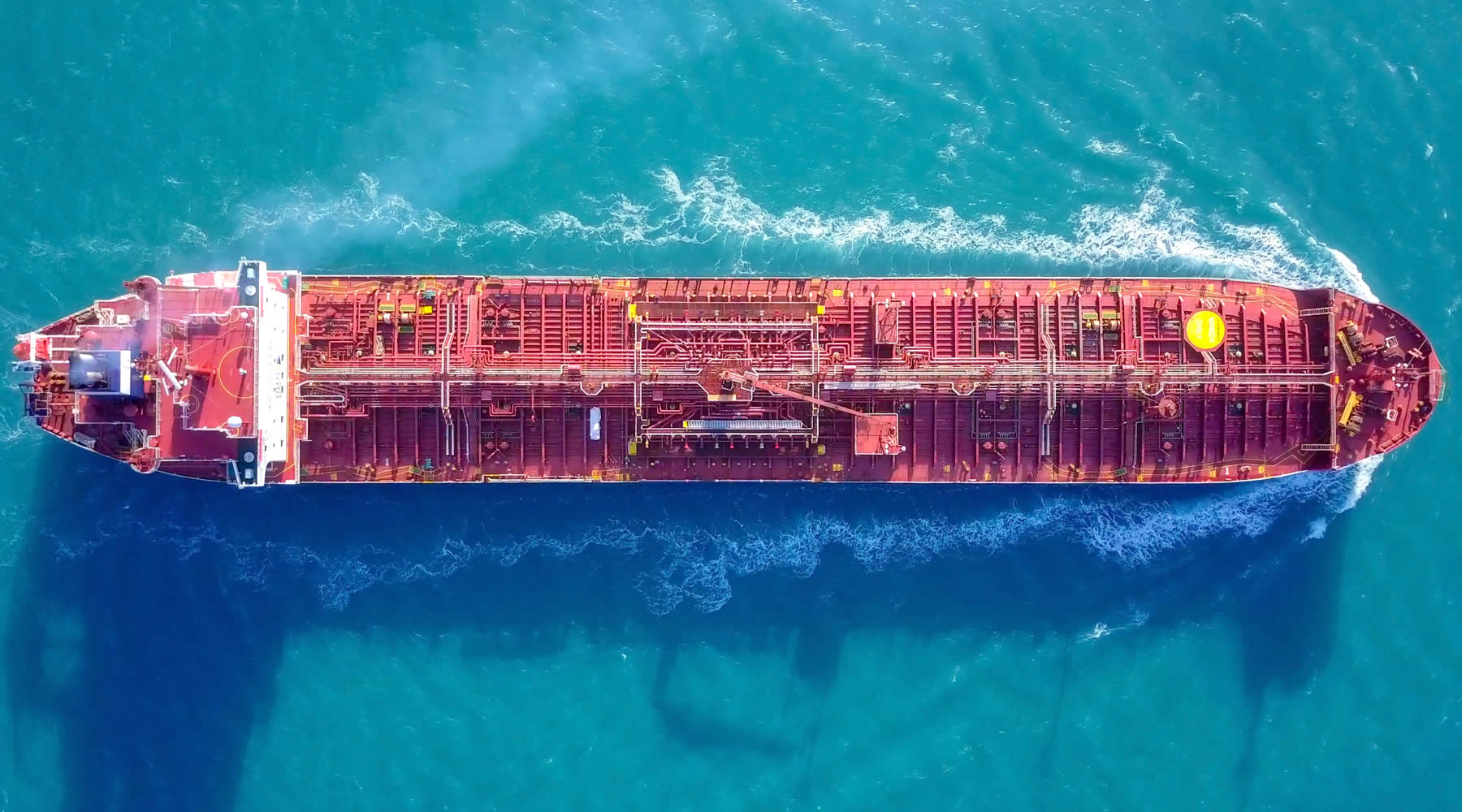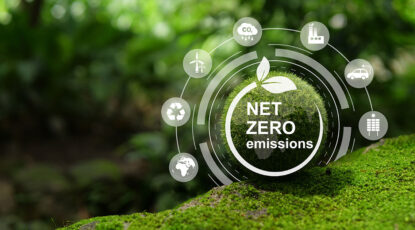The shipping industry is vital in connecting cultures and driving global economic growth. Shipping is the most efficient mode of cargo transport and accounts for 80 to 90 percent of international trade.
Because the industry connects the globe, it’s in a unique position to make global change – in particular, global climate change.
It’s estimated that shipping emits around 949 million tons of carbon dioxide annually, or about 2.2 percent of global carbon emissions. That places the industry amongst the largest emitters – just below the world’s five highest-emitting countries. Further, it’s predicted that emissions from shipping could grow between 50 and 250 percent by 2050 if no action is taken.
The International Maritime Organization (IMO), a specialized agency of the United Nations (UN), is the global standard-setting authority of international shipping, and the good news is, it has taken significant steps to regulate the industry.
In April 2018, the 173 Member States of the UN’s IMO agreed to cut emissions generated from shipping to 50 percent below 2008 levels by 2050 and to cut emissions from individual ships by 40 percent from 2008 levels by 2030.
One of the world’s leading shipbuilders is already taking steps to meet these goals – in September 2019, Samsung Heavy Industries (SHI) announced it is working with Bloom Energy to build ships powered by solid oxide fuel cell technology instead of oil. The company believes that replacing oil-based power generation on its large cargo ships could reduce GHG emissions by 45 percent over the course of a year.
The Bloom Energy-SHI collaboration represents an important shift in the industry’s approach to energy and emissions.
Reducing the Environmental Impact of Marine Transport
Reducing GHG emissions is just one of three environmental impact areas the industry is focusing on. Through an energy efficiency measure known as the Energy Efficiency Design Index (EEDI), IMO is working towards achieving 30 percent more energy efficient new ships by 2025 compared to those built in 2014.
Reducing air pollutants from international shipping, particularly sulfur oxides and nitrogen oxides, is also part of the shipping industry’s efforts. A 2018 study found that health impacts due to pollution from shipping include 14 million cases of childhood asthma annually and 400,000 premature deaths a year from lung cancer and cardiovascular disease.
Leading shipping companies are seeking ways to reduce these combustion-related emissions and contribute to healthier global air quality.
A New Solution: Powering Ships With Fuel Cells
Today, 80 percent of the world’s shipping fleet runs on a particularly dirty type of fuel called heavy fuel oil, or bunker fuel. When this fuel burns, it emits GHGs such as carbon dioxide and methane, trapping heat in the atmosphere and contributing to global warming.
Now, one of the world’s largest shipbuilders is excited about the potential of replacing the combustion of bunker fuel with solid oxide fuel cell technology running on natural gas, a cleaner fuel that is already beginning to gain traction in the shipping industry.

In contrast to bunker fuel combustion, Bloom Energy’s solid oxide fuel cells generate electric power through an electrochemical reaction, producing virtually no smog-forming emissions.
This collaboration is expected to benefit all three environmental impact areas the shipping industry is focusing on today; Bloom’s technology converts fuel into electricity at the highest efficiency of any power solution available in the world today, it significantly reduces CO2 emissions, and it produces virtually no criteria air pollutants.
Onboard fuel cells can be powered by natural gas, converted from liquefied natural gas (LNG), which is already commonly transported by marine shipping worldwide. Additionally, given our recent announcement of our fuel cells’ capability to run on hydrogen, and as nations and ports further develop their hydrogen infrastructure, fuel cell-powered ships could transition from natural gas fuel to hydrogen fuel and become zero-carbon and zero-smog emitters.
Notably, the modularity and power density of Bloom Energy Servers makes them well-suited for ships given the space constraints. SHI envisions Bloom Energy Servers displacing power generation sets, and therefore requiring no additional space or even reducing the total space required for power generation.
Bloom’s technology has been deployed hundreds of times on land for commercial and industrial customers, including 25 of the Fortune 100 companies. And for the first time, these fuel cells are being factored into the design of new ships. The initial design has received Approval in Principle from DNV GL, the internationally accredited marine shipping registrar and classification society.
Collaborating for a Cleaner Global Future
The global shipping industry today has more than 126,000 ships using over 600 GW of power, which is equivalent to more than 250,000 utility-scale wind turbines or nearly two billion photovoltaic (PV) panels. Further it is estimated that around 2,000 to 2,500 ships annually will be added to the global fleet over the next five years.
The LNG ecosystem, which would be utilized by fuel cell-powered ships, is maturing with regulations and technical rules for safe operation. Although LNG refueling infrastructure and the global LNG-powered ship fleet are still developing, they make up one of the fastest growing segments in the market. According to DNV GL, 400 to 600 LNG-powered ships are expected to be delivered by 2020.
Today, Bloom installation sizes average below 5 MW. With each individual ship drawing 20 MW of power or more, the market opportunity, and the potential to reduce emissions from global shipping, are both very substantial.
Above all, our collaboration with SHI extends both companies’ vision of creating a cleaner global environment. Fuel-cell powered ships will help SHI exceed the IMO’s emissions reduction goals and will enable Bloom to bring its transformative technology to another sector of the global economy, helping to accelerate the world’s path to zero emissions.



